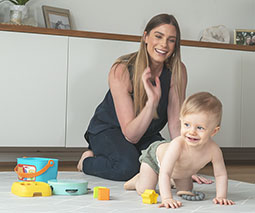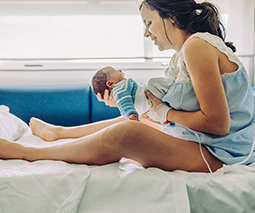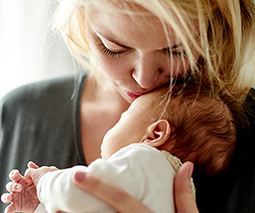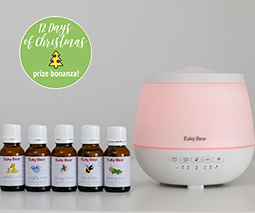25 helpful ways to support the family of a premature baby
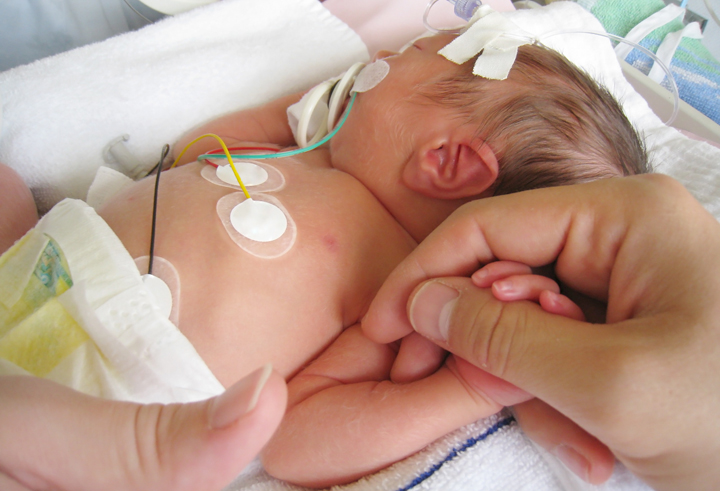
When a baby arrives unexpectedly early, its parents’ lives are turned completely upside down. All focus (quite rightly) shifts to ensuring that tiny person receives the best care possible and begins to thrive.
Any plans parents might have had about the birth and life afterwards are waylaid, and often friends and family are not sure how best to support the new parents. It’s a stressful and bewildering time, but there are lots of things that can be done to make life easier on the family involved.
Here’s our guide to practically and emotionally supporting NICU (Newborn Intensive Care Unit) families through this stressful time.

When the baby arrives
1. Congratulate the family on their new arrival – as you would with any baby. Send a card or flowers or whatever you’d usually send when a newborn makes its much anticipated appearance. Remember this baby is as hoped-for and loved as any full-term baby.
2. Send gifts – a thoughtful gift will be super appreciated at a time when the new baby’s parents are guaranteed to be feeling exhausted and worried.
Gift ideas for parents of premmie baby:
- NICU parents are forever washing their hands, so some nice hand cream to put on at bedtime is a practical and helpful idea.
- A photo book voucher to help them compile an album of NICU photos can help to create a valuable keepsake and track progress in a visual way.
- A nice blank journal and beautiful pen to record thoughts and the the NICU journey.
- A disposable camera to keep at the hospital so staff can record special moments if parents are away or at home.
- A basket of healthy, packaged snacks for the parents to take to hospital or keep in the car. (And some treats too!)
- Nice tissues, small mirror and spare toiletry pack for hospital.
- Comfy clothes for hanging out in the hospital – a cosy cardigan or wrap and some cute socks, for instance.
- Notepad and pen for scribbled reminders.
- Fuel vouchers are extra useful. Vital even.
- A lovely blanket large enough to cover parent and baby.
- Box of blank thank you cards and stamps so parents can respond to people who send gifts and notes.
- Books about kangaroo care and premmie infant bonding.
Gift ideas for the new (early!) baby:
- Earlybirds has some great clothing and nursery options for even the tiniest premmie babies, or you could consider making something if you are crafty. There are some pattern links and other helpful resources at AustPrem.
- Story books are another great gift because story time can be a valuable way for parents and babies to bond while in the NICU.
- Gentle music CDs to listen to in the hospital and make the transition to home sound more familiar.
3. Visit mindfully but proactively – don’t just pop in. Check with the parents when would suit them. Very often babies are undergoing procedures or visiting might not be appropriate that day. You could always meet parents in the hospital gardens or cafeteria for a chinwag if baby is not up to having guests, though. Don’t let a ‘no’ stop you from trying again down the track, either. Keep at it.
4. Keep in touch – sometimes the new family get bombarded with messages in the first couple of weeks, and then people drop off as the hard work sets in. Stay in touch regularly and keep in mind that this is a marathon for this family, not a sprint. Put a reminder in your calendar, if need be. Do whatever it takes to keep contact consistent.
5. Admire baby photos – no matter how tiny or vulnerable the new baby looks, go out of your way to notice how special they are.
“When you have the opportunity, ask if you can see photos of the baby, and offer positive comments about them even if they looks strange to you. This means a lot to the parents, who already see and love the strength and beauty of their child, despite the tubes and wires,” premmie support service Li’l Aussie Prems Foundation advises.
6. Avoid platitudes – ‘everything happens for a reason’ or, ‘things could be worse’ and the like are not helpful comments to make in this situation. Listen carefully to the parents and know that this is the most difficult experience of their life and should not be trivialised. Give them the opportunity to explain how this feels to them, rather than trying to ‘fix’ things.

Self care and morale
7. Encourage self care – make sure new parents have someone to talk to about their worries, both within their friend/family circle and at the hospital. Ensure they know that it’s okay to go home and have a big bubble bath or a sleep-in, now and then. Remind the new mum she’s just given birth and her wellbeing is a priority too. Encourage new parents to look after themselves as much as they can, so that they can look after their baby well.
8. Organise a massage – the amount of tension a new parent can hold in their weary muscles should not be underestimated. Organise a massage voucher and offer to help ferry the parent to the massage venue or step in at the hospital/home to keep the other parent company.
9. Send love letters and messages – make sure news mums and dads realise that you are thinking of them and are noticing all the hard work they are putting in, by telling them so!
10. Spring for a dinner voucher – the parents will be wearing a track to and from the hospital and may feel unable to divert too far from this path. Organise a dinner for them near to the NICU so that they can get some time away from their usual gruelling-but-important routine. If the restaurant doesn’t do dinner vouchers – make a booking and transfer some funds OR give the parents a VISA gift card (or similar!)
11. Connect parents to helpful services – talk to other premmie parents or the midwives at the NICU unit and find out if there are support services the new family could be using. Often parents are bombarded with information and operating in survival mode, so facilitating assistance can be really useful.
12. Check in with Dad – mums are often the focus when a new baby enters the world, but it’s important to remember that dads are often suffering and stressed, and overlooked. Check in with the dad and organise a catch-up at the hospital, or meet nearby for a chat.
13. Bake for the baby – good food equals good milk, so healthy and delicious meal deliveries are good for Mum and baby. You could also try making some milk-encouraging treats? Maybe these chocolate-chip lactation cookies or this lactation banana bread? #Yum!
14. Champion milk – some experts say that fenugreek helps to promote breastmilk production, so a gift of some (apparently disgusting-tasting) fenugreek tea or some fenugreek capsules might be helpful for mums who are working hard to establish milk supply MUCH earlier than anticipated.
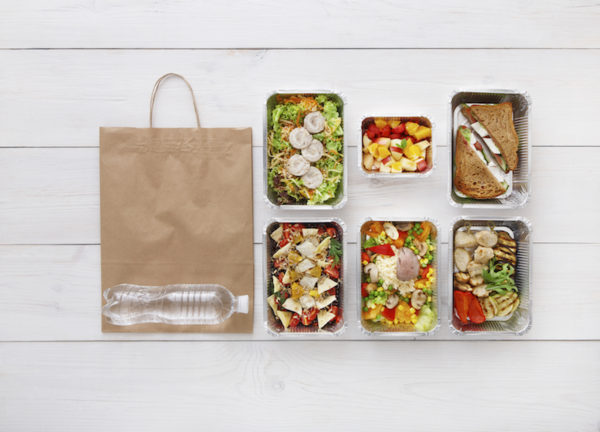
Home help and food
15. Organise fresh home-cooked meals – take the initiative and organise a meal roster with the new parents’ friends. A service like Take Them A Meal can be invaluable with this kind of roster’s legwork. You can then share the roster details on Facebook with the family’s friends and they can opt in to help.
The last thing premmie parents want to do is shop and cook, so a ready-to-warm-up meal from a friend at the end of the day is a godsend. Don’t forget to make a little extra and pop it in a freezer-friendly container to double the benefit and ensure there is always something in the fridge.
16. Make time for babysitting – if there are other children in the family, childcare is going to be a real challenge. Put your hand up and put yourself out to ensure that the family are well supported, and older kids get to have some time-out and do fun stuff with caring friends.
17. Think of the pets – dog walking is very, very low down the list when families are juggling NICU and home. Again, draw up a roster or alternatively, start a new exercise regimen involving someone else’s dog!
18. Gift groceries – pick up a box of shopping for the family and drop it off, or shop online and get groceries delivered to their doorstep. Aussie Farmers Direct will leave deliveries (nicely packed and refrigerated) even if nobody’s home, if you are worried about logistics. They also do ‘meal boxes’ with recipe ingredients included, which is super helpful.
19. Help with cleaning – shout the family a couple of hours tidying from a professional cleaner or, if you know them well enough, pop around and tidy up on their behalf.
Logistics and hospital snacks
20. Chauffeur the parents – parking costs a bomb, so offer to drive the family to the hospital some days. You can hang around and keep one parent company while the other stays home and rests, OR you can drop them off and come back later (with a sneaky dinner for two tucked in a basket) to take them home again.

Before the baby comes home
22. Nursery sorting – an early arrival may mean that the parents are unprepared and possibly overwhelmed by the idea of keeping things together and prepping a nursery for baby’s triumphant return. Ask the new parents what they need and how you can help them get it sorted.
23. Baby shower – early babies sometimes miss out on the much-hoped-for baby shower. If this is the case with the family you know, have a chat to the mum about making this important celebration happen in the way she chooses.
After the baby comes home
24. Follow up regularly – check in on your favourite little family often. Know that they are facing all the challenges of bringing baby home with an extra dose of exhaustion. Ensure that you’re there to support them for the long haul, and let them know that the practical help you’ve been providing while they were spending so much time at the hospital still stands.
25. Parent’s night out – after seeing the hospital and home and not much else for weeks or months on end, maybe it’s time to get back out into the world and have some fun? It may not be possible for both parents to leave their new little one, so you could organise a switcheroo halfway through the evening and give both parents a chance to get out of the house and talk about non-baby things … or baby things! Alternatively, organise two nights out!
We hope this helps you to help a family you care about at a really difficult time. If you are parent of a premmie, be sure to share this post so your friends and family can find more ways to help your family cope and thrive.

